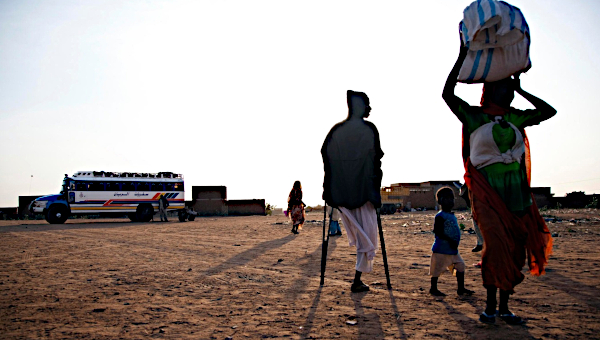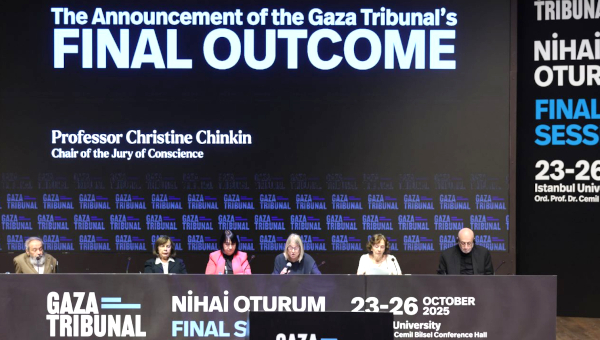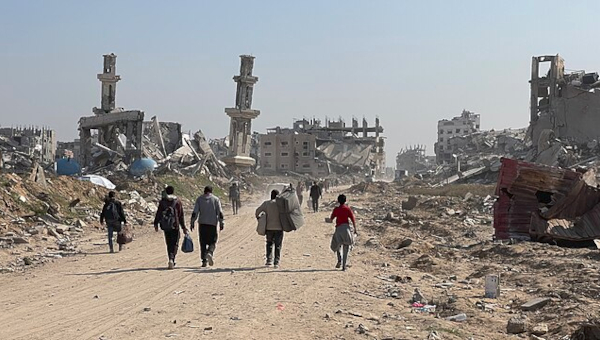Even Germany Now Condemns Israeli Crimes: But That Doesn’t Mean They’ll Stop Funding Them
After months of silence and excuses, the European Union is beginning to speak directly about Israeli war crimes. Even Berlin – previously Netanyahu’s most loyal ally in Europe – suggests that “not everything can be justified anymore by the fight against terrorism.” Is this the beginning of real change, or merely moral window dressing?
Just last autumn, Friedrich Merz, whilst seeking the chancellorship of Germany, promised “unlimited arms deliveries to Israel” and assured that Germany would support its “right to self-defence.” This was long after the number of casualties in Gaza and the West Bank had exceeded 50,000. The International Court of Justice (ICJ) had ruled that Israel was pursuing apartheid policies against Palestinians, violating fundamental norms of international law, and the International Criminal Court (ICC) had issued arrest warrants for Prime Minister Benjamin Netanyahu and Defence Minister Yoav Gallant, charging them with war crimes and crimes against humanity.
After winning the February parliamentary elections, Merz held a telephone conversation with Netanyahu, during which he invited him to Germany. This led to tensions within the then-governing coalition. The Green Party, currently in opposition, has long spoken about the need for a more critical policy toward Israel and respecting the ICC ruling.
Two months later, the chancellor, facing growing pressure from the left-wing opposition, German society, and other European politicians, somewhat revised his position. When Merz won the elections, a ceasefire was in effect, and his rather favourable attitude toward Israel could partly stem from hopes that peace could be maintained. Today it’s difficult to believe that this was ever the goal of those governing the “only democracy in the Middle East.”
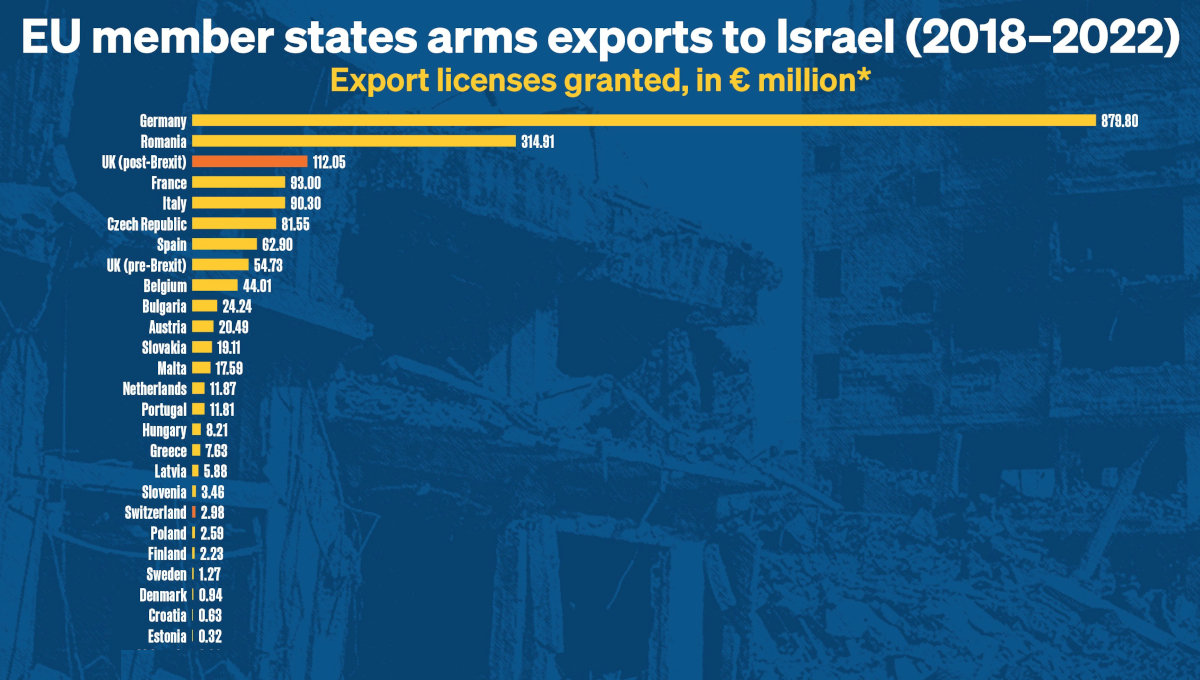
Escalating Violence
Israel broke the fragile truce, murdering civilians with increased frequency. The Israeli army shot at close range over a dozen marked medical rescuers and a UN worker, then buried their bodies along with the ambulances. It bombed the last standing school buildings and hospitals. It has starved thousands of Palestinian children, maintaining an almost complete blockade of international humanitarian aid for twelve weeks.
It took the levelling of over 70 per cent of Gaza for Germany’s leader to make such a groundbreaking declaration as “what’s happening in Gaza can no longer be justified by the fight against terrorism.” Merz added that he had “stopped understanding what Israel is trying to achieve,” though Netanyahu and his people openly state that the goal of the ongoing “military operation” is the annexation of the Gaza Strip.
The German government even considered such “radical” steps as stopping weapons shipments to Israel – as reported by Israeli public television Kan 11, Tel Aviv undertook intensive diplomatic efforts against such ideas. With positive results – Johann Wadephul, head of Germany’s Foreign Ministry, has already assured that deliveries are not under threat.
Is the EU Changing Front?
Recent weeks have brought the clearest shift in Europe’s policy toward Israel so far. It was accelerated by Israeli soldiers firing on a convoy of vehicles carrying diplomats from thirty countries. “The European Union will review the pact governing political and economic relations with Israel in connection with the catastrophic situation in the Gaza Strip,” said Kaja Kallas, head of EU diplomacy, on 20 May.
Kallas wants to determine whether Israel respects the provisions of the free trade agreement signed with the EU in 2000, in which the parties agreed that “they will be based on respect for human rights and democratic principles, which guide their policies.” She emphasised that the EU will demand that Israel allow humanitarian aid into Gaza without any restrictions. The Israeli Foreign Ministry issued a statement “strongly rejecting” the EU’s chosen direction, arguing that the decision stems from misunderstanding of Israel’s situation, and that international pressure should be exerted on Hamas, allegedly fully responsible for the collapse of the ceasefire agreement.
France, under Emmanuel Macron’s leadership, has announced that it will formally recognise a Palestinian state in the coming months, undertaking diplomatic efforts to persuade other UN members, including Britain, to do the same. So far, 148 out of 193 have done so (Poland in 1988, just after the Palestine Liberation Organisation unilaterally declared the creation of a state), but France would be the first among the G7. The debate on this topic has returned to the French parliament for a decade, but each time it gets stuck in deadlock due to protests from Israel and its most zealous allies. Malta, however, has begun preparations to implement the proposal, planning to do so as early as June.
Ireland, which along with Spain and Norway recognised a Palestinian state in 2024, announced work on legislation banning imports of goods from illegally occupied Palestinian territories. The scale of this trade is small, and services have been excluded from the project so far, but Ireland still belongs to the countries most engaged in the Palestinian cause. Simon Harris – defence minister, foreign minister, and deputy prime minister rolled into one – expressed hope in a post on X that the Foreign Affairs Committee would begin reviewing the legislation in June, and in an interview with the Financial Times called for more decisive global action.
Harris joined the still small group of EU governing officials who directly call Israeli actions genocidal. Earlier, Spanish Prime Minister Pedro Sánchez did so. Spain, unlike Germany or Poland, has supported International Criminal Court actions against Benjamin Netanyahu and Gallant from the beginning.
In the Spanish parliament, a non-binding, urgently processed bill by left-wing formations passed, providing for an embargo on arms and military equipment exports to Israel. Foreign Minister Jose Manuel Albares called on European Union and UN countries to take identical action. Currently, the United States and Germany are primarily responsible for arms deliveries to Israel, but limited military support also flows from many other Western countries, including Italy.
On Monday, 26 May, a group of ten Italian lawyers sent a formal warning to Giorgia Meloni’s government, demanding an end to defence cooperation with Israel. This concerns a memorandum signed in 2003, which is to be automatically extended for another five years on 8 June. According to experts, the agreement violates international law and human rights, and its content remains classified, making public oversight of the costs and scope of cooperation impossible. In the signatories’ opinion, the memorandum also contradicts the Italian constitution, which guarantees citizens the right to information and the right to peace. The lawyers announced they would pursue legal action if the government does not withdraw from the agreement.
The British Government Cornered
Britain also reacted to the resumption of operations in the Gaza Strip. On 20 May, British Foreign Secretary David Lammy of the Labour Party suspended talks with Israel on a free trade agreement, calling its moves an “insult.” British Prime Minister Keir Starmer managed to state that the level of suffering in the Gaza Strip, especially among children, is “unbearable,” and called Israel’s decision to allow a small amount of humanitarian aid “completely inadequate.” Together with the leaders of France and Canada, he also signed a statement condemning the way Israel responds to the crisis and calling for an immediate halt to military operations in the Palestinian enclave and the admission of lorries with water, food, and medicine. In response, Netanyahu accused allies of “standing on the wrong side of history” and supporting Hamas, threatening to take retaliatory action against the three defiant allies.
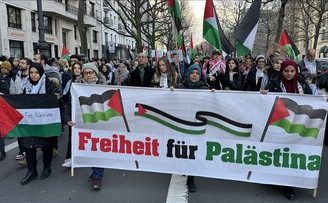
The British government allows recognition of a Palestinian state provided there is a realistic plan to turn this symbolic gesture into reality. Meanwhile, Israel excludes not only the so-called two-state solution but also any steps in that direction. Benjamin Netanyahu is determined to stay in power and at liberty, which lasting peace would threaten. Moreover, he doesn’t want to go down in history as the one who allowed the largest massacre of Jews since World War II and then “rewarded” the perpetrators with their own state in territories that Israelis consider theirs.
Pressure on Keir Starmer’s government was joined by over 800 lawyers in an open letter published on 26 May. They called on the prime minister to impose sanctions on Israel and revise trade agreements in connection with mounting evidence of genocide. They cited a statement by Finance Minister Bezalel Smotrich, in which he stated that the Israeli army would “wipe out” everything that remained of the Gaza Strip. According to the letter’s signatories, Britain, as a permanent member of the UN Security Council, should also consider pursuing the suspension of Israel’s membership rights.
Ritual Condemnation and “Agreement Reviews” Won’t Suffice
The European Union has much stronger tools at its disposal than the half-measures and symbolic declarations we’ve been hearing for the past few weeks. As former EU foreign policy chief Josep Borrell repeatedly emphasised, Israel is not self-sufficient. The EU is its main trading partner. Nearly half of the components used to produce weapons later used in Gaza come from Europe – including drones, aerial bombs, and cyber technologies. Israeli foreign currency reserves are held in European banks; joint research, arms, and technology programmes are developed in European laboratories; and European universities still maintain cooperation with Israeli institutes linked to military complexes.
Israel, deprived of EU economic, technological, and political support, would find itself in crisis within a few months – especially given growing impatience from Donald Trump, who was supposed to be an outstanding negotiator, mediator, and angel of peace, but is being played like a child by both Jerusalem and Moscow. This is precisely why the Israeli government’s reactions to even moderate criticism from Brussels are so nervous. Meanwhile, the EU limits itself to ritual condemnations and promises of “agreement reviews.”
In the face of crimes that were and are being committed with premeditation, full awareness of consequences, and complete impunity for perpetrators, such actions are not only moral bankruptcy – they’re complicity. •
This article first published in English at the Europe Solidaire website. Translated for ESSF by Adam Novak.


